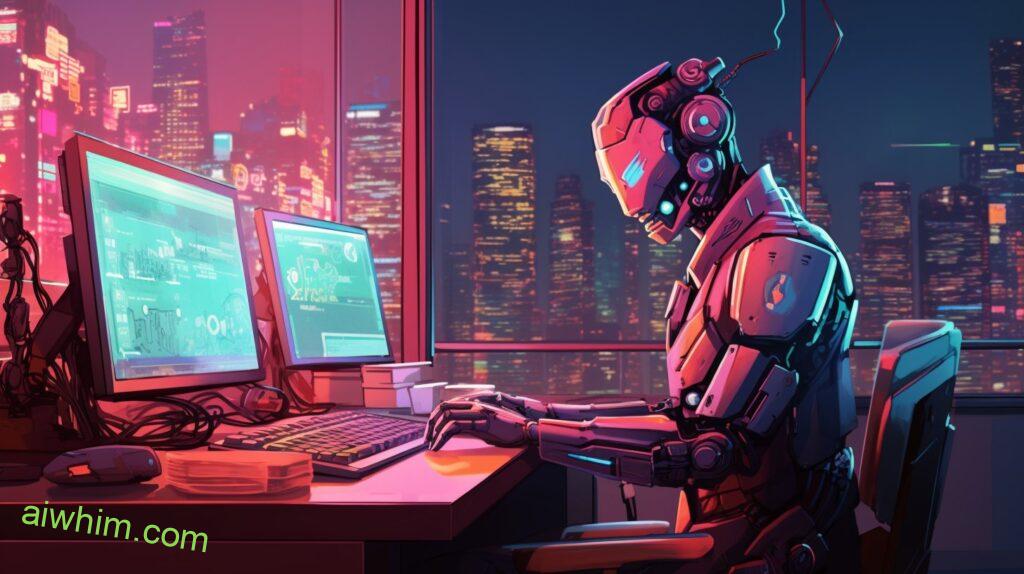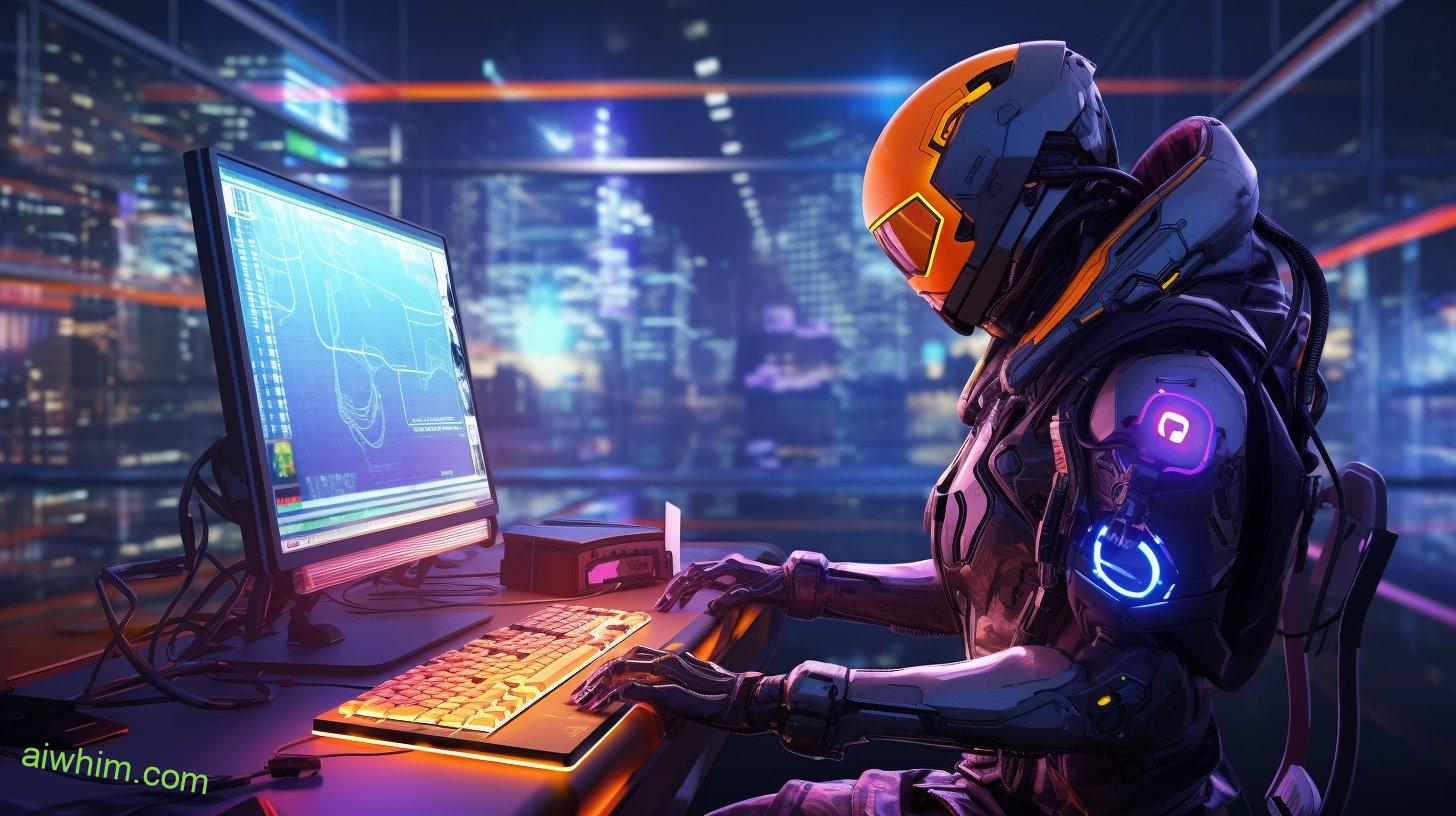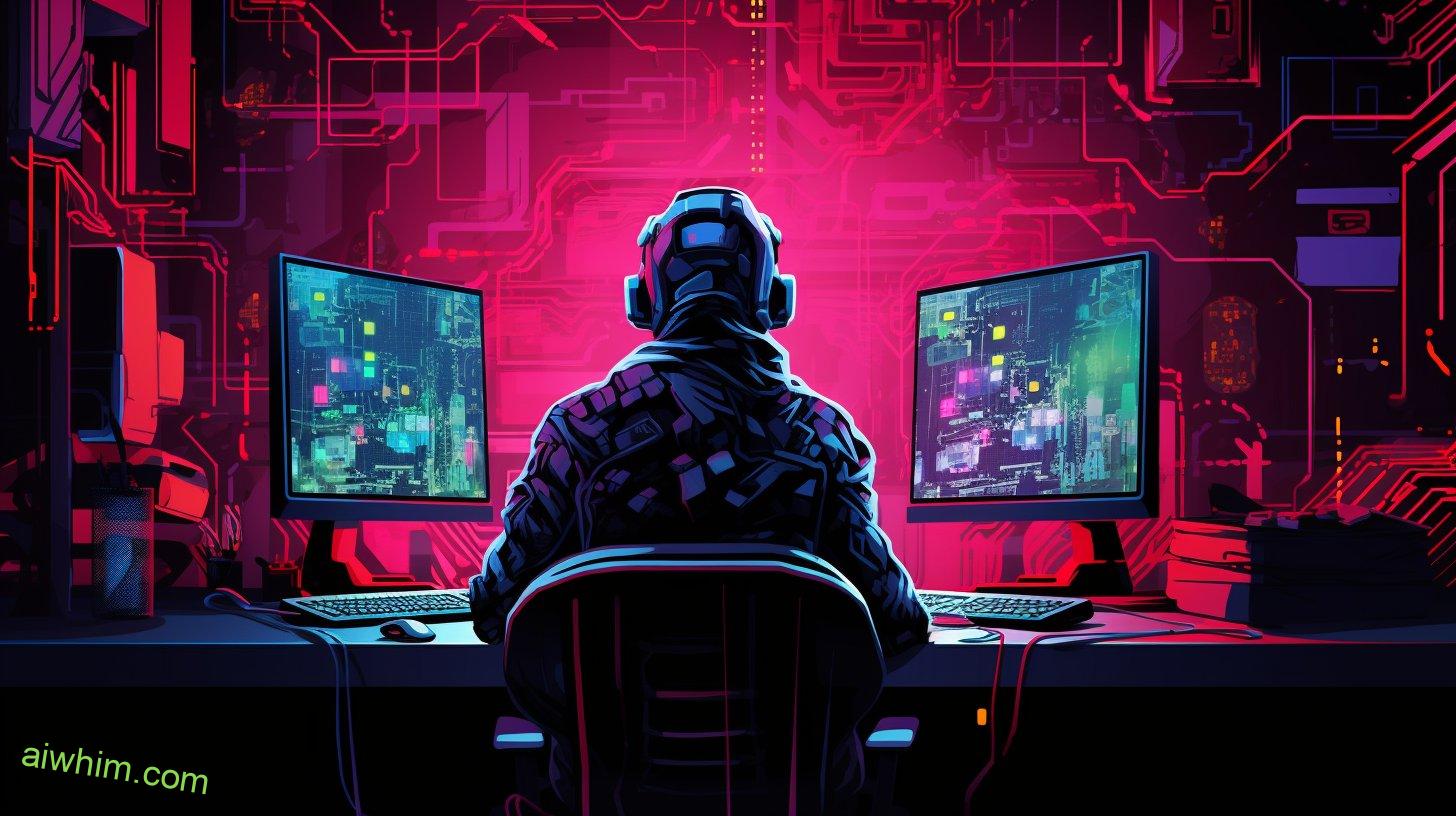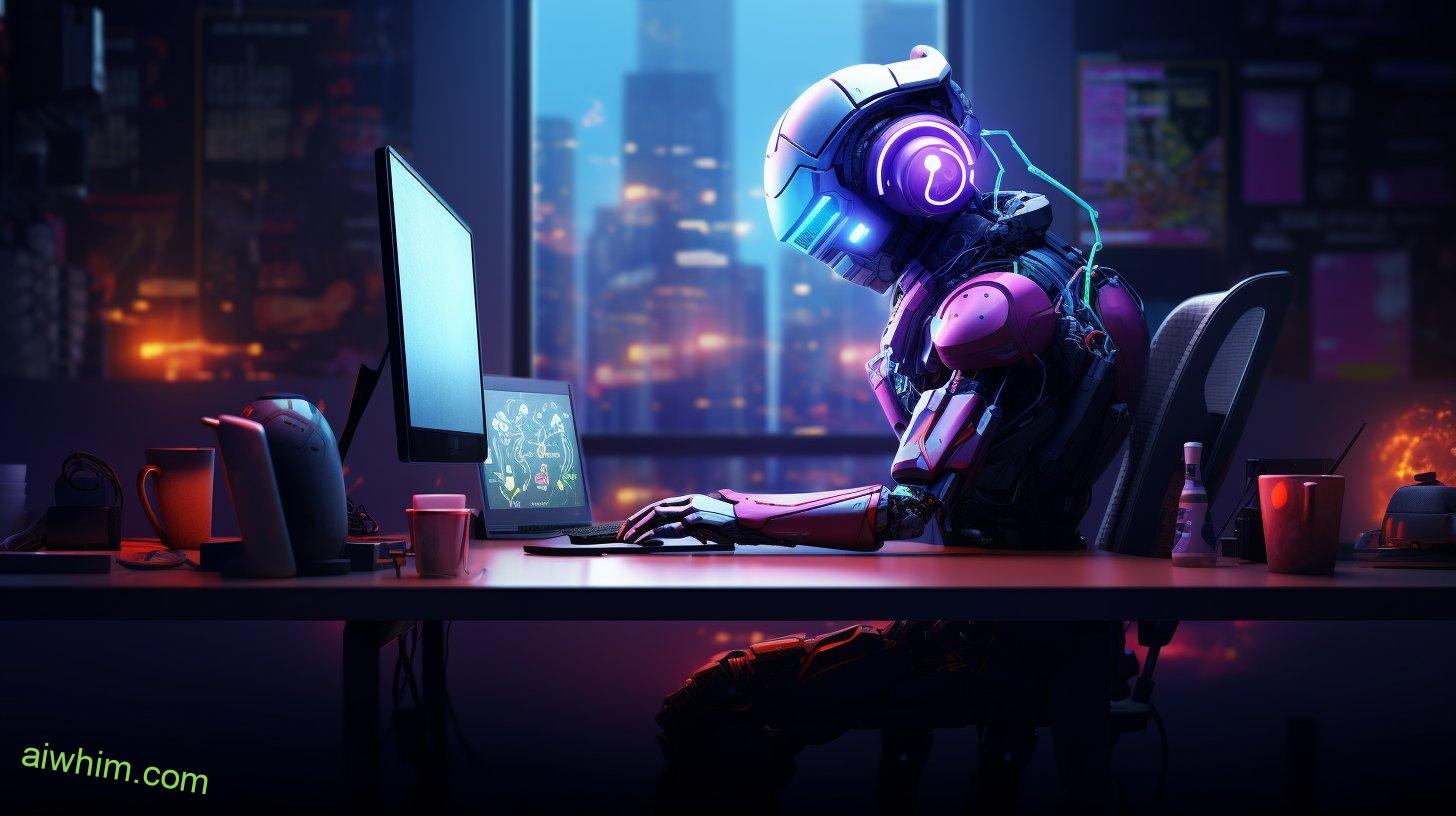Do you ever wonder if artificial intelligence (AI) will replace computer engineers?
Well, buckle up because we’re about to dive into this thought-provoking topic. AI’s rise in the engineering field has sparked debates about its potential to take over our jobs.
But before we jump to conclusions, let’s explore how AI is impacting computer engineering and whether it will truly become a successor to human engineers.
Get ready for an eye-opening journey that will challenge your perspectives and reveal the opportunities and challenges that lie ahead.
Key Takeaways
- AI is revolutionizing computer engineering by automating and integrating into various aspects of engineering work.
- AI technology allows businesses to streamline processes and improve efficiency through automation.
- AI-driven innovation and engineering automation enhance task performance in engineering.
- Ethical considerations, such as accountability, responsibility, transparency, and bias, arise in AI development.
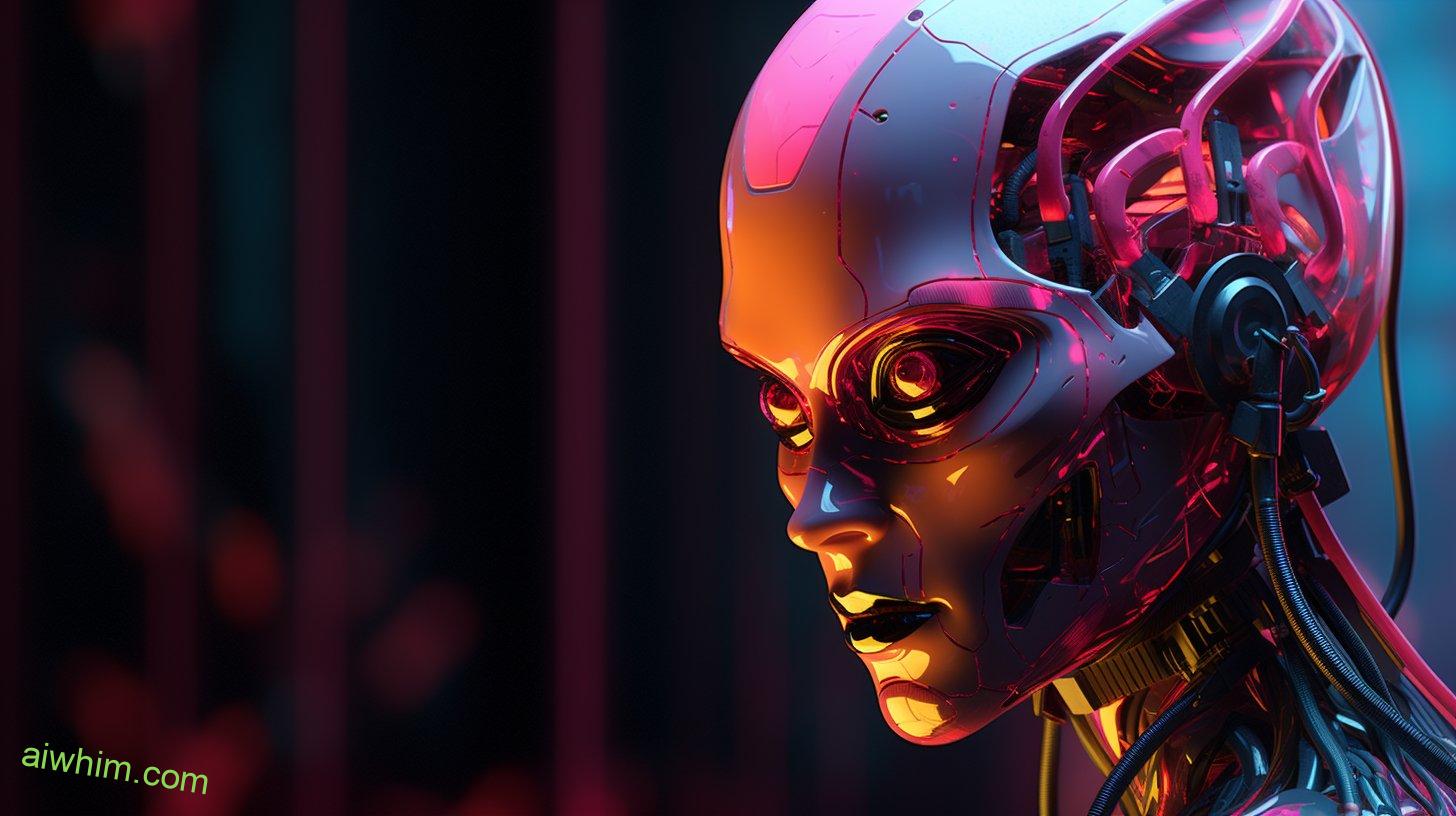
The Rise of AI in the Engineering Field
AI is becoming your successor in the field of computer engineering. With the rise of automation, artificial intelligence is revolutionizing the way tasks are performed, making it an indispensable tool for engineers like yourself. The increasing capabilities and efficiency of AI systems have led to their integration into various aspects of engineering work, from design and analysis to optimization and maintenance.
The rise of automation facilitated by AI brings both benefits and ethical implications. On one hand, AI can streamline processes, increase productivity, and free up time for you to focus on more complex problem-solving tasks. It can analyze vast amounts of data quickly and accurately, enabling you to make informed decisions faster than ever before. This level of efficiency allows you to tackle larger projects or take on multiple assignments simultaneously.
However, there are also ethical considerations that come with relying heavily on AI in engineering. As machines become more autonomous, questions arise about accountability and responsibility when errors occur or decisions go wrong. Issues such as bias in algorithms or potential job displacement also need careful consideration.
Despite these concerns, embracing AI in the engineering field offers immense opportunities for growth and innovation. By leveraging the power of artificial intelligence alongside your expertise as a computer engineer, you can push boundaries further while maintaining control over critical decision-making processes.
In this era where freedom is highly valued, integrating AI responsibly into engineering practices allows you to harness its potential without compromising your autonomy as an engineer. Stay open-minded about the possibilities that arise from this technological advancement while ensuring adequate checks and balances are in place to address any ethical implications that may arise along the way.
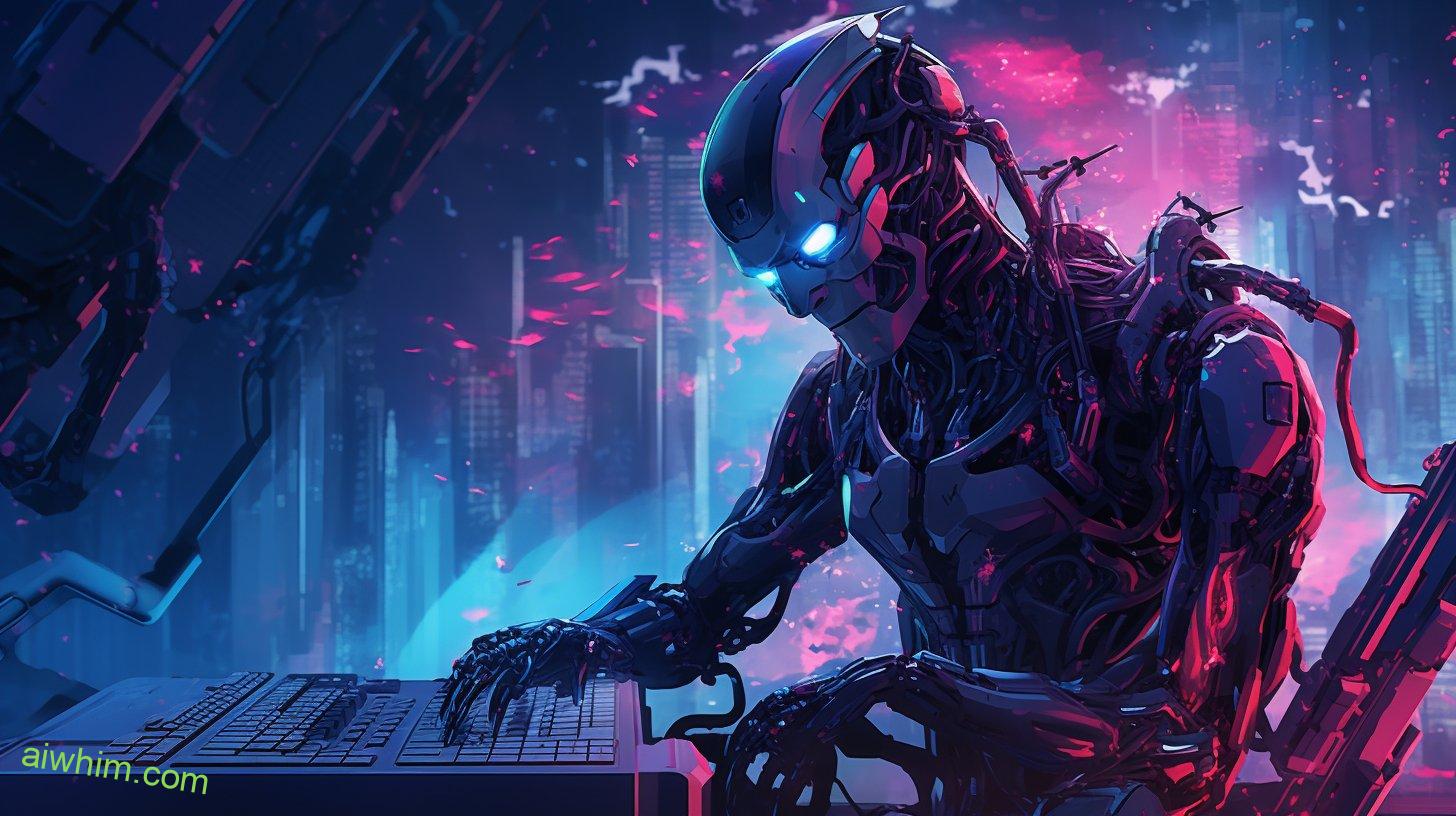
AI’s Impact on Computer Engineering Jobs
You might be wondering about the impact of advanced technology on job opportunities in the field of computer engineering. Well, let me tell you, artificial intelligence (AI) has certainly made its mark on this industry. While it has undoubtedly brought about numerous advancements and efficiencies, it has also raised concerns about job security and ethical implications.
AI’s impact on job security in computer engineering is a topic of much debate. On one hand, AI has the potential to automate certain tasks traditionally performed by computer engineers, leading to fears that jobs may be replaced by machines. However, it’s essential to understand that AI is not meant to replace human engineers entirely but rather complement their skills and capabilities. In fact, AI can enhance productivity and allow engineers to focus on more complex and creative problem-solving tasks.
However, there are ethical implications that come with integrating AI into computer engineering practices. As AI systems become more sophisticated and autonomous, questions arise regarding their accountability and decision-making processes. Computer engineers must navigate these challenges responsibly by ensuring transparency in algorithms and designing systems that align with ethical principles.
To thrive in this changing landscape, computer engineers must adapt their skill sets to work alongside AI technologies rather than against them. This may involve acquiring knowledge in machine learning or data analysis to optimize the use of AI tools effectively.
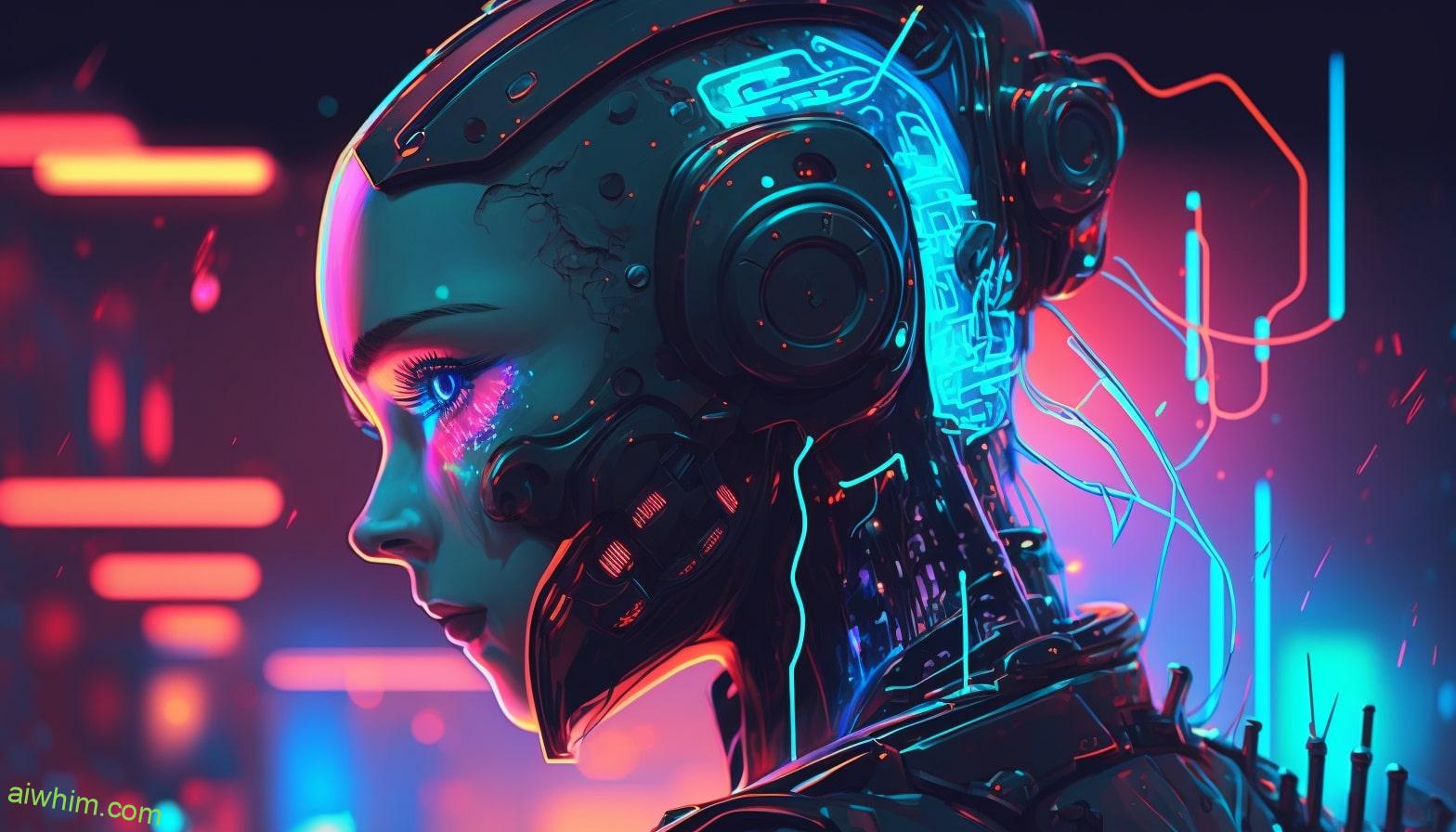
The Evolution of AI Technology
As technology continues to advance, the evolution of AI technology is shaping various industries and revolutionizing the way we approach problem-solving and automation. With the rapid development of AI algorithms, artificial intelligence is becoming more sophisticated and capable of performing complex tasks that were once exclusive to human intelligence. This evolution has had a profound impact on society.
AI algorithms have become more efficient at processing large amounts of data and extracting meaningful insights from it. This has allowed businesses to make better decisions based on data-driven analysis, leading to improved efficiency and productivity. Moreover, AI-powered automation has transformed many industries by streamlining processes and reducing the need for manual labor. Tasks that used to require human intervention can now be performed automatically with greater accuracy and speed.
The impact of AI on society extends beyond just business applications. In healthcare, AI algorithms are being used to analyze medical records and diagnose diseases with high levels of accuracy. This enables doctors to provide more personalized treatment plans for patients. Additionally, AI-powered virtual assistants are becoming increasingly popular in homes around the world, providing convenience and assistance with daily tasks.
While there are concerns about job displacement due to advancements in AI technology, it is important to note that these technologies also create new opportunities for innovation and growth. As certain jobs become automated, new roles emerge that require human creativity and critical thinking skills.
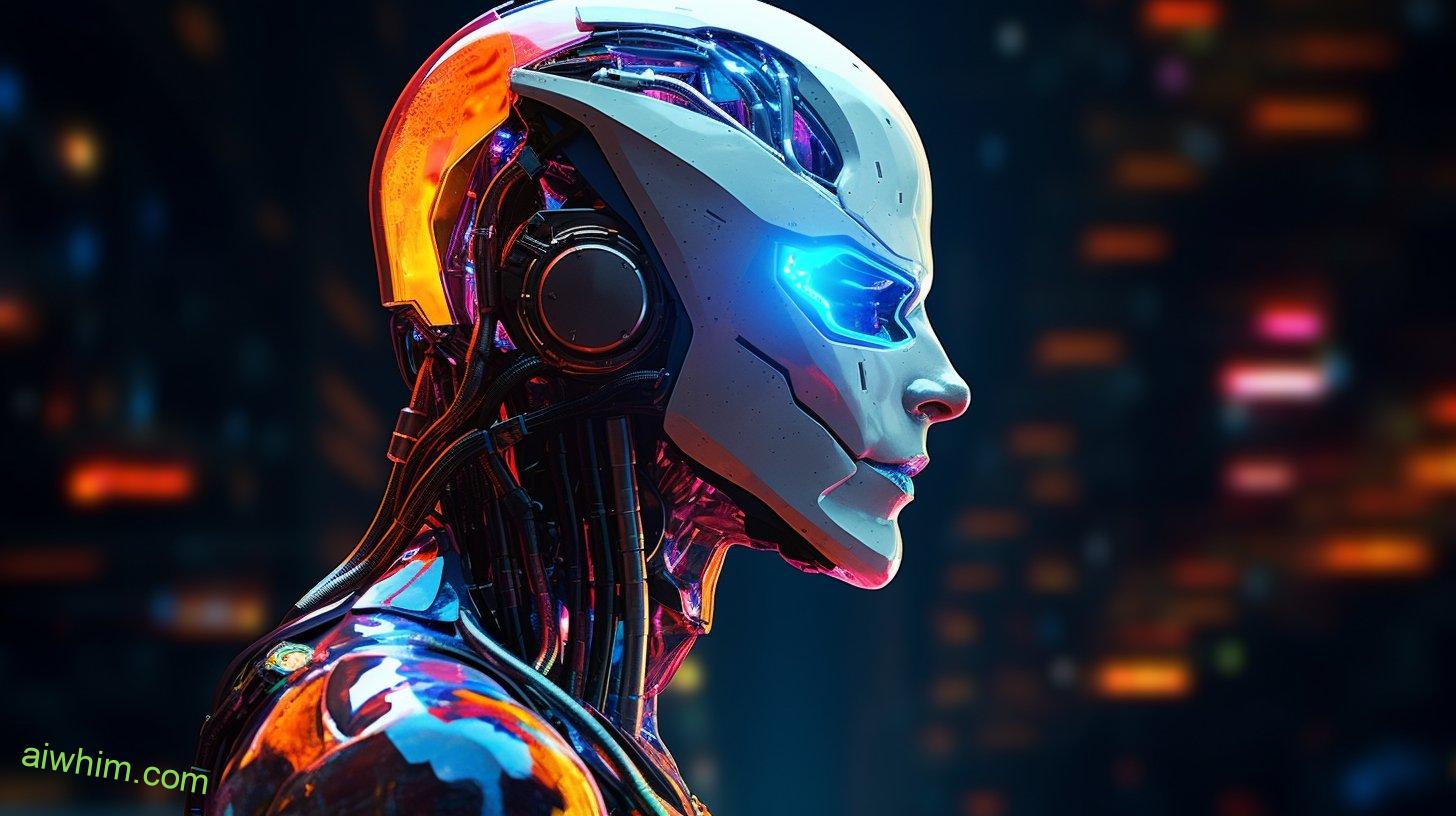
The Role of AI in Automation and Efficiency
With the increasing sophistication of AI technology, your business can streamline processes and improve efficiency through automation. AI in manufacturing has revolutionized the industry by allowing machines to perform complex tasks with precision and speed. By implementing AI-powered robots and systems, you can optimize production lines, reduce errors, and increase productivity.
AI in data analysis is another area where automation can greatly benefit your business. Traditional data analysis methods are time-consuming and often prone to human error. However, with AI algorithms and machine learning capabilities, you can analyze large amounts of data quickly and accurately. This enables you to make informed decisions based on real-time insights, improving your overall business performance.
By embracing AI in automation and efficiency, you are giving yourself the freedom to focus on more strategic aspects of your business. Repetitive tasks that once consumed valuable time can now be automated, allowing you to allocate resources towards innovation and growth opportunities. With AI handling mundane tasks, you have the freedom to explore new ideas, develop creative solutions, and build stronger relationships with customers.
Moreover, integrating AI into your operations can lead to cost savings in the long run. By automating processes that were previously done manually or required a large workforce, you can reduce labor costs while increasing output quality. Additionally, improved efficiency means less waste in terms of time, materials, and energy consumption.
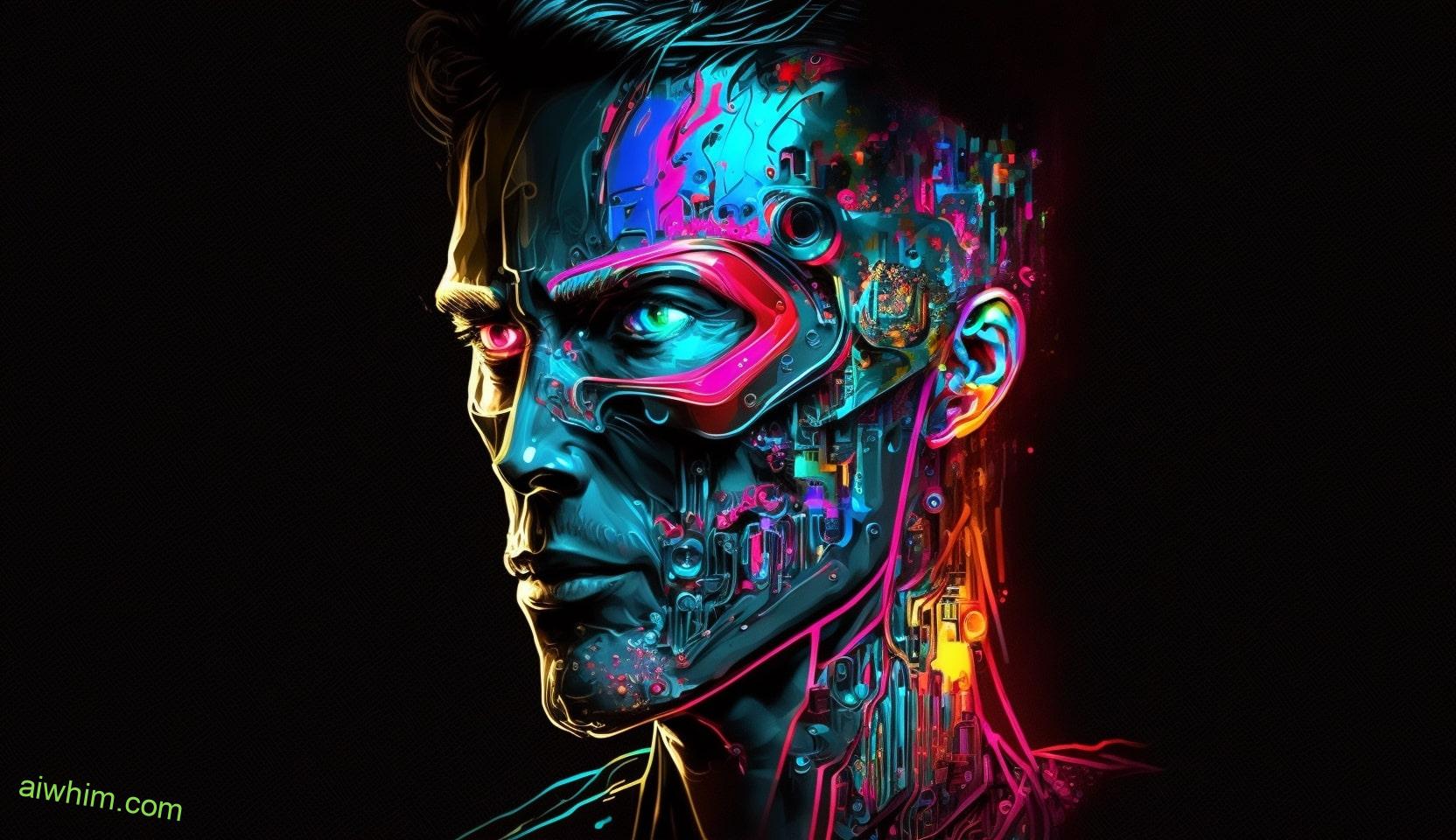
AI as a Tool for Innovation in Engineering
Implementing AI in engineering processes can revolutionize the way tasks are performed, allowing for increased innovation and efficiency. With AI-driven innovation and engineering automation, you have the freedom to explore new ideas and push boundaries in your field.
Here’s how AI can empower you to achieve this:
- Improved Design Optimization: AI algorithms can analyze vast amounts of data to identify patterns and optimize designs. This means you can quickly iterate through multiple design options, finding the most efficient and effective solutions for your projects.
- Enhanced Predictive Maintenance: By leveraging AI technology, you have the ability to predict when equipment or systems might fail before it happens. This allows you to schedule maintenance proactively, minimizing downtime and maximizing productivity.
- Streamlined Decision-Making: AI-powered tools can provide real-time insights that support decision-making processes. Whether it’s selecting materials, choosing manufacturing methods, or optimizing resource allocation, these tools enable you to make informed decisions with confidence.
By embracing AI-driven innovation in engineering, you are empowered to tackle complex challenges more efficiently than ever before. Automation frees up your time from repetitive tasks so that you can focus on what truly matters – creativity and problem-solving.
With these advancements at your disposal, there is no limit to what you can achieve in your pursuit of engineering excellence. So go ahead, harness the power of AI and unlock a world of possibilities!
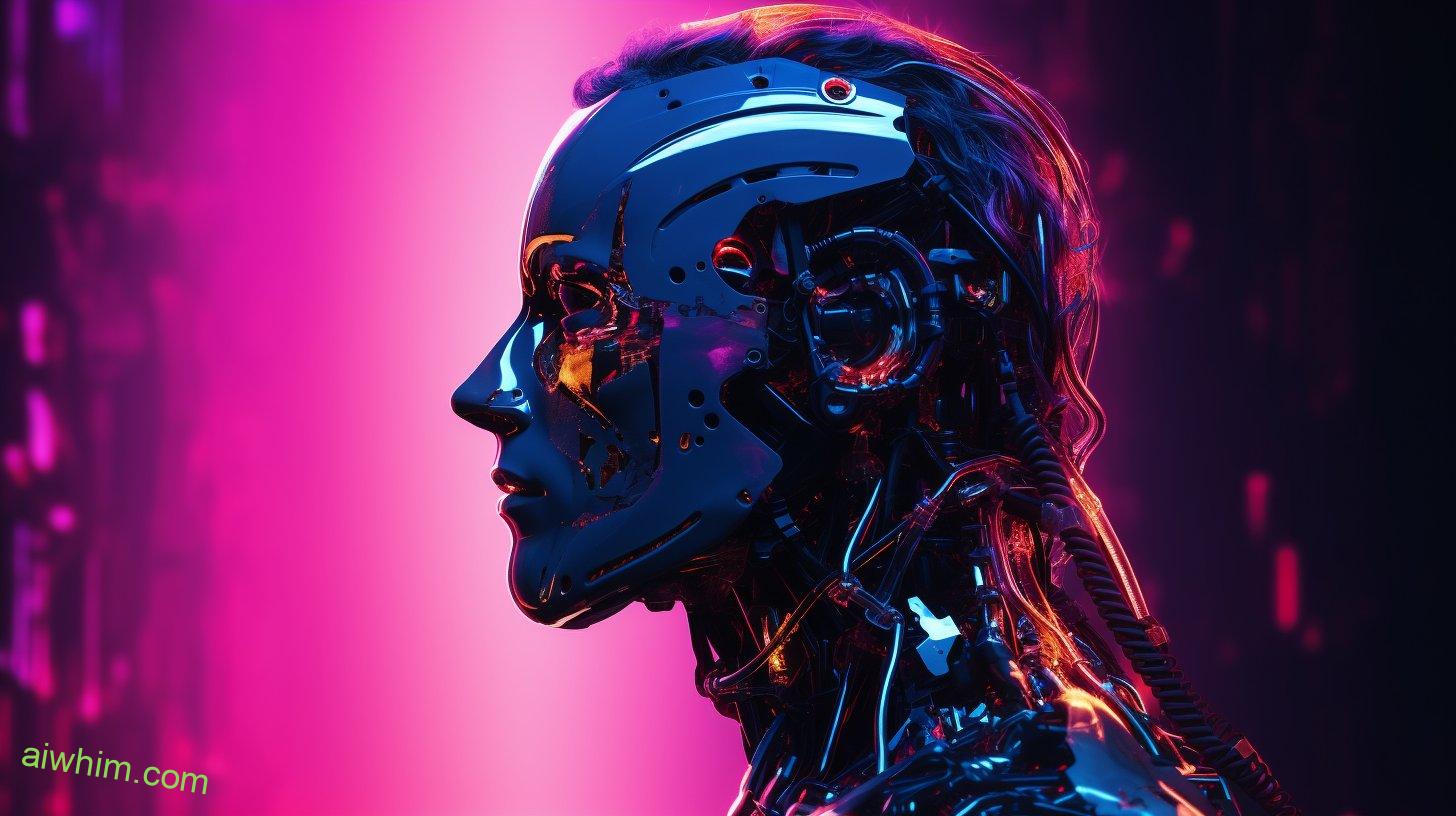
How AI Is Enhancing Computer Engineering Skills
AI is revolutionizing computer engineering skills by improving design optimization, enhancing predictive maintenance, and streamlining decision-making processes. With AI’s impact on computer engineering education, you now have the opportunity to learn new techniques and approaches that were previously inaccessible. AI has become an integral part of software development, allowing engineers like yourself to create more efficient and sophisticated programs.
In terms of design optimization, AI algorithms can analyze vast amounts of data and identify patterns that humans may miss. This enables you to create designs that are more efficient and tailored to specific requirements. By incorporating AI into your workflow, you can save time and resources while producing superior results.
Another area where AI is making a significant impact is in predictive maintenance. Traditional methods often involve periodic inspections or manual monitoring, which can be time-consuming and inefficient. However, with the help of AI systems that continuously analyze data from sensors installed in machines or equipment, you can detect potential issues before they become critical failures. This not only saves money but also ensures uninterrupted operations.
Furthermore, AI is streamlining decision-making processes by providing valuable insights based on data analysis. Instead of relying solely on intuition or experience, you can now make informed decisions backed by evidence-driven recommendations generated by AI models.
As the field of computer engineering evolves rapidly due to technological advancements such as artificial intelligence, it becomes crucial for professionals like yourself to embrace these changes. By staying updated with the latest developments in AI’s role in software development and its impact on computer engineering education, you position yourself at the forefront of innovation and ensure your continued success in this dynamic industry where freedom to explore new possibilities is highly valued.

The Potential Threat of AI to Computer Engineers
The potential threat of AI to computer engineers is something that professionals in the field must consider and address. As technology continues to advance at an exponential rate, it is essential to acknowledge the potential risks that AI poses to job security in the computer engineering industry.
Here are some key points to consider:
- Automation: With the rapid development of AI, there is a growing concern that certain tasks traditionally performed by computer engineers could be automated by intelligent machines. This automation could potentially lead to a decrease in demand for human professionals, posing a risk to job security.
- Specialization: As AI becomes more sophisticated, it has the potential to specialize in specific areas of computer engineering. This specialization could result in a reduction of opportunities for generalist computer engineers, who may find themselves competing with specialized AI systems for employment.
- Ethical considerations: While AI can greatly enhance productivity and efficiency within the field of computer engineering, it also raises ethical concerns. Professionals must ensure that they are using AI responsibly and ethically, as failure to do so could have serious consequences for both individuals and society as a whole.
In order to address these potential threats posed by AI, it is crucial for computer engineers to continuously update their skills and stay ahead of technological advancements. By embracing new technologies and learning how to work alongside intelligent machines, professionals can position themselves as valuable assets rather than being replaced by them. Additionally, staying informed about the latest developments in AI ethics will enable engineers to navigate this evolving landscape responsibly.
Although there may be concerns about job security due to the rise of AI in computer engineering, proactive measures can be taken by professionals in this field. By adapting and leveraging their skills alongside intelligent machines while prioritizing ethical practices, computer engineers can continue thriving in an ever-evolving technological landscape.
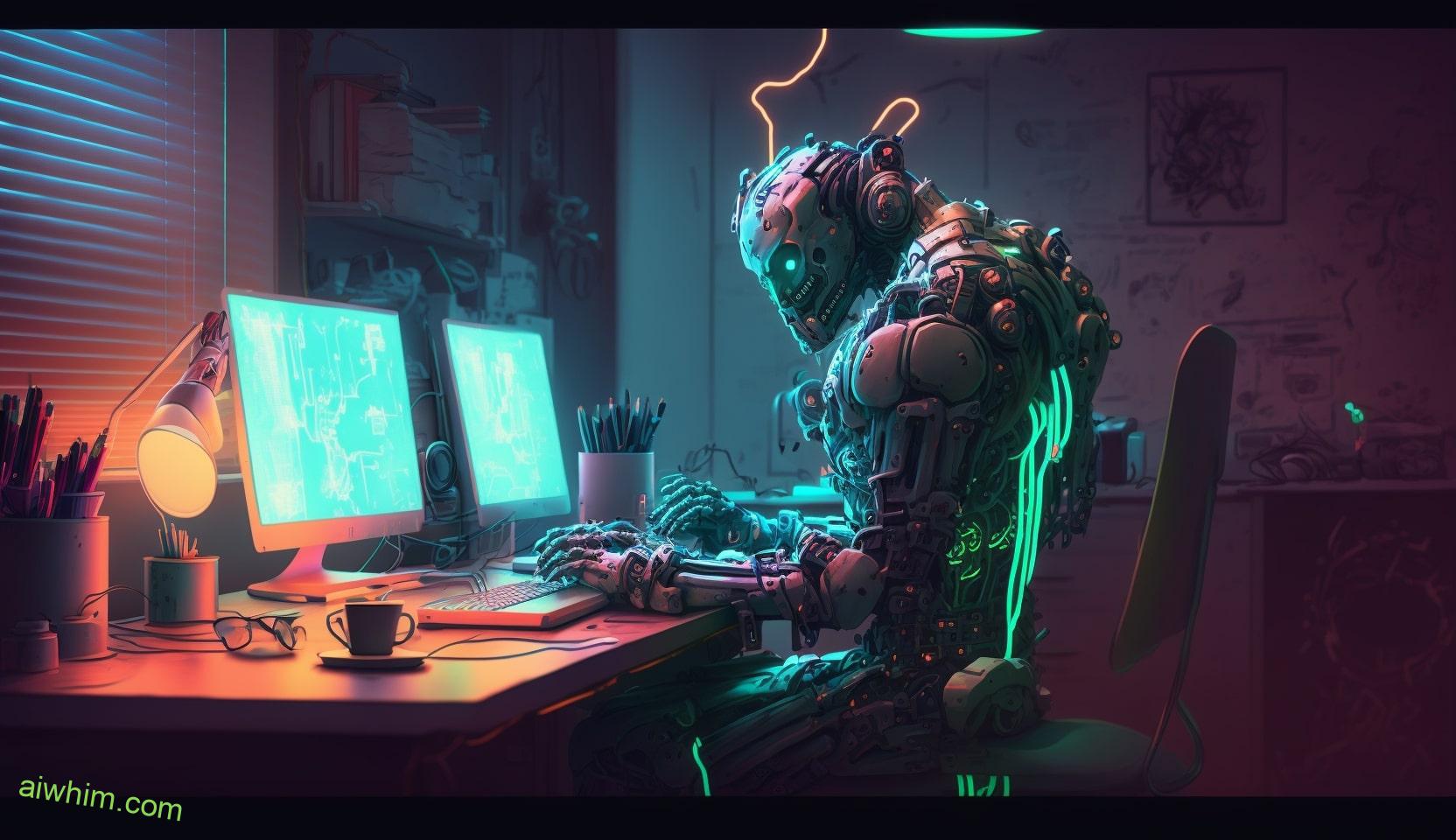
Ethical Considerations in AI Development
As technology continues to advance, it is important to address the ethical implications of developing AI. With the rapid progress in artificial intelligence, there is a growing need for regulation and guidelines to ensure responsible use of this powerful technology.
The ethical implications of AI development are far-reaching and have the potential to impact various aspects of society. One major concern is the potential for bias and discrimination in AI systems. Machine learning algorithms can inadvertently perpetuate existing biases present in society, raising questions about fairness and equality in decision-making processes.
Privacy is another important consideration. As AI becomes more integrated into our daily lives, it has access to vast amounts of personal data. Safeguarding this data from unauthorized access or misuse becomes crucial. Striking a balance between utilizing personal information for improving AI capabilities while respecting individual privacy rights is a challenge that needs to be addressed.
Transparency is crucial in ensuring accountability with AI systems. Users should have an understanding of how these systems make decisions so that they can trust their outcomes. Explainable AI, which provides insights into the decision-making process of algorithms, could help alleviate concerns regarding opacity and lack of control.
Furthermore, there must be regulations in place to prevent malicious use of AI technology. The potential for autonomous weapons or manipulation through deepfake technology poses significant threats that need careful consideration.
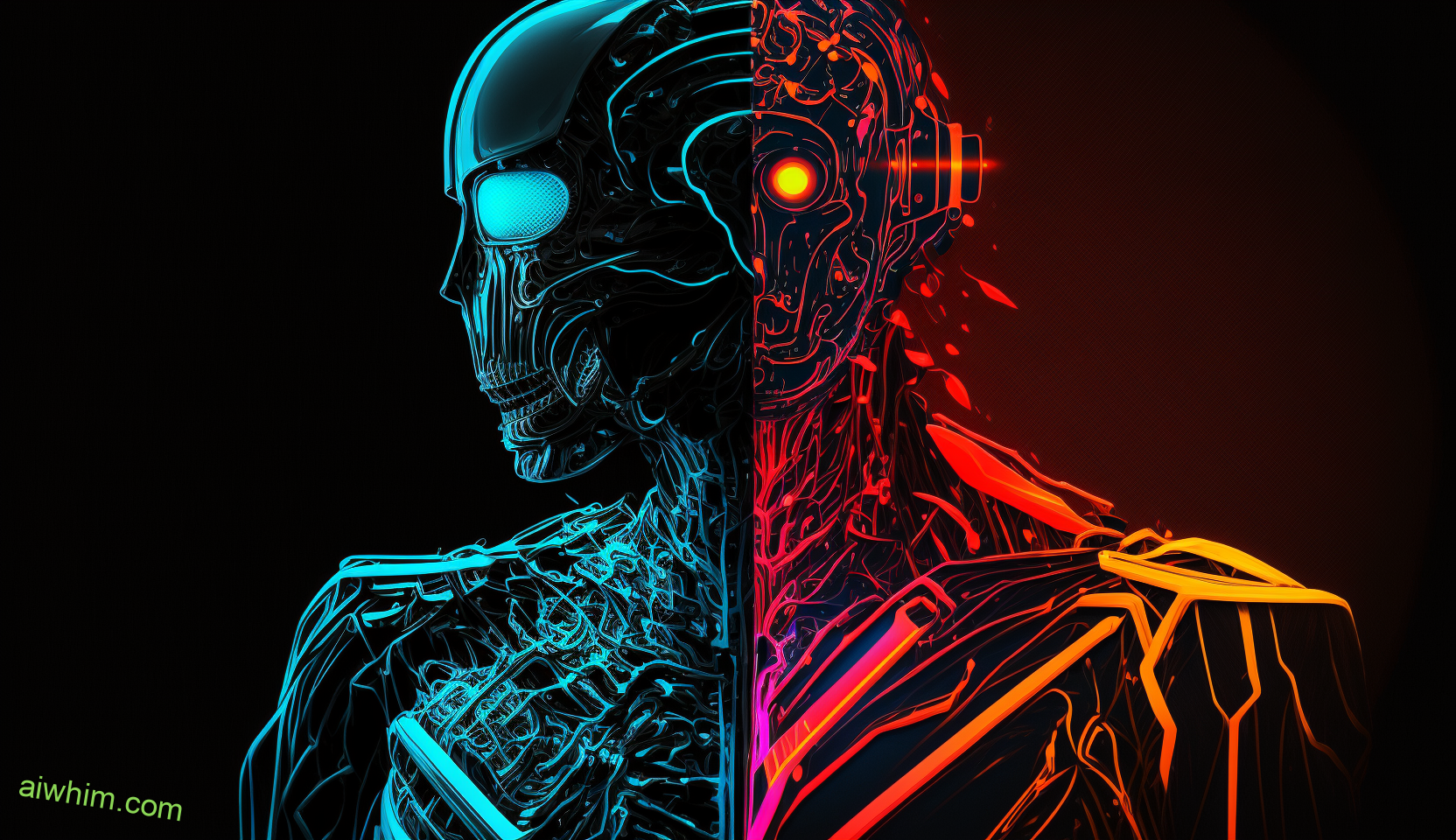
The Future of AI and Its Implications for Computer Engineering
With advancements in technology, there’s no doubt that AI will continue to shape the field of computer engineering. As a student or professional in this dynamic industry, you’re probably wondering how AI will impact your education and career. Here are some key points to consider:
- The Impact of AI on Computer Engineering Education:
- AI can enhance traditional teaching methods by providing personalized learning experiences tailored to individual student needs.
- Incorporating AI into computer engineering curriculum can expose students to real-world applications and challenges, preparing them for future work environments.
- However, there is a need for educators to strike a balance between utilizing AI tools and ensuring fundamental concepts and skills are not compromised.
- The Ethical Dilemmas of Integrating AI in Computer Engineering:
- The use of AI raises concerns about privacy and data security as it relies heavily on collecting vast amounts of personal information.
- Bias in algorithms is another ethical dilemma. If not carefully monitored, AI systems may perpetuate existing social inequalities or discriminate against certain groups.
- Transparency and accountability become critical when implementing AI technologies, as they should be able to explain their decision-making process.
As the role of artificial intelligence continues to expand within computer engineering, it is crucial for professionals like yourself to remain vigilant about the ethical implications. By staying informed and engaging in discussions surrounding these issues, you can actively contribute to shaping an ethically responsible future for the field. Embrace the possibilities that come with technological advancements while advocating for freedom, fairness, and equal opportunities.
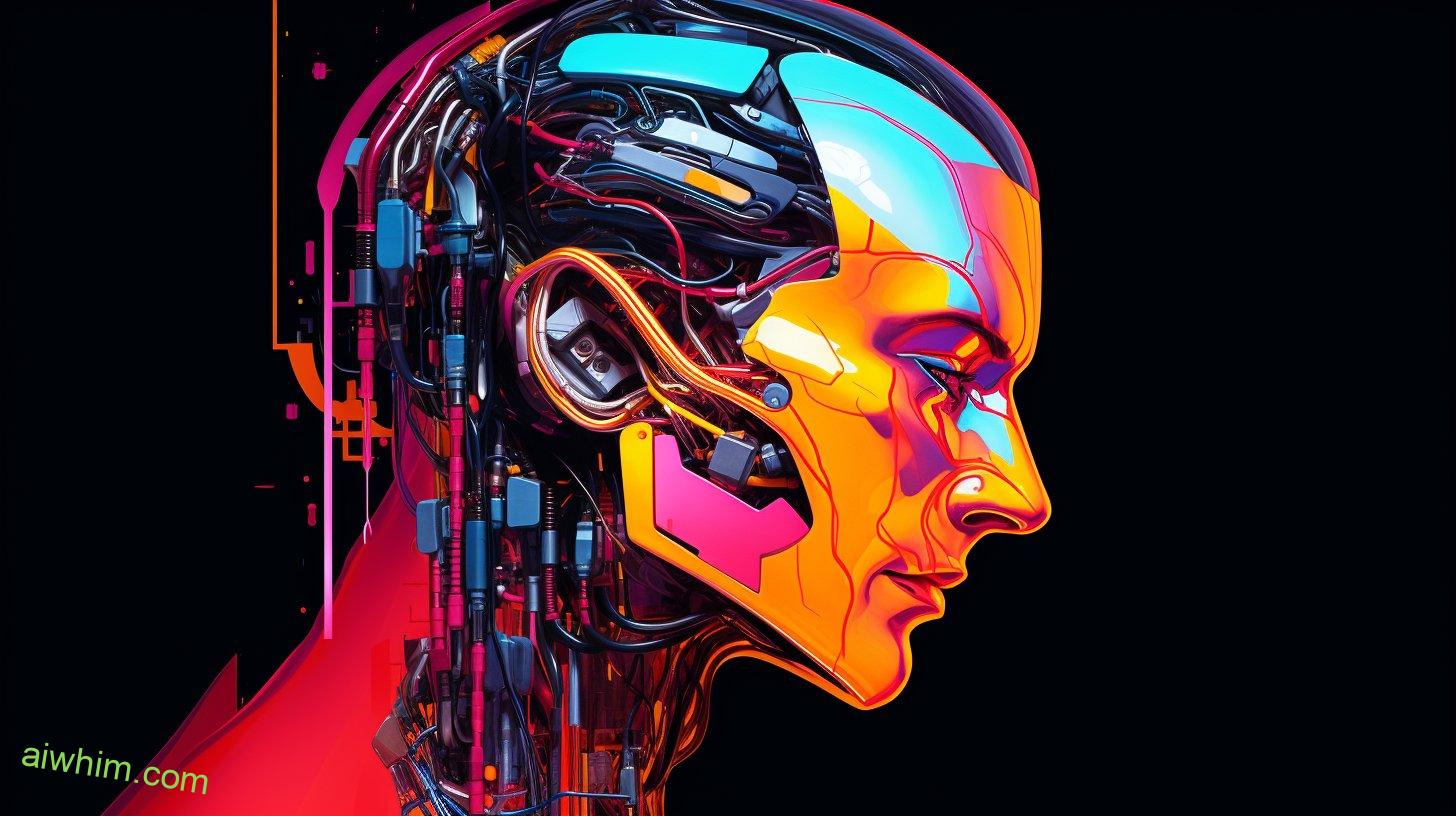
AI Vs Human Intelligence in the Engineering Field
Advancements in AI technology are challenging the traditional notion of human intelligence within the engineering field. As an individual who values freedom, you may be wondering about the future of engineering jobs and how AI compares to human creativity.
AI has proven to be highly efficient in performing tasks that were once exclusive to humans. It can analyze vast amounts of data, identify patterns, and make accurate predictions. This raises questions about whether AI will eventually replace human engineers altogether.
However, it is important to remember that human creativity and intuition cannot be replicated by machines. While AI can assist engineers in their work by automating certain processes, it lacks the ability to think critically, adapt to new situations, and come up with innovative solutions.
The future of engineering jobs lies in a collaboration between humans and AI. Instead of being replaced by machines, engineers will need to adapt their skill sets to complement AI technology. This means focusing on areas that require human ingenuity such as problem-solving, critical thinking, and innovation.
By embracing this partnership between humans and AI, engineers can leverage the computational power of machines while harnessing their creative abilities. Together, they can push the boundaries of what is possible in engineering and drive advancements in various fields such as robotics, renewable energy, aerospace, and more.
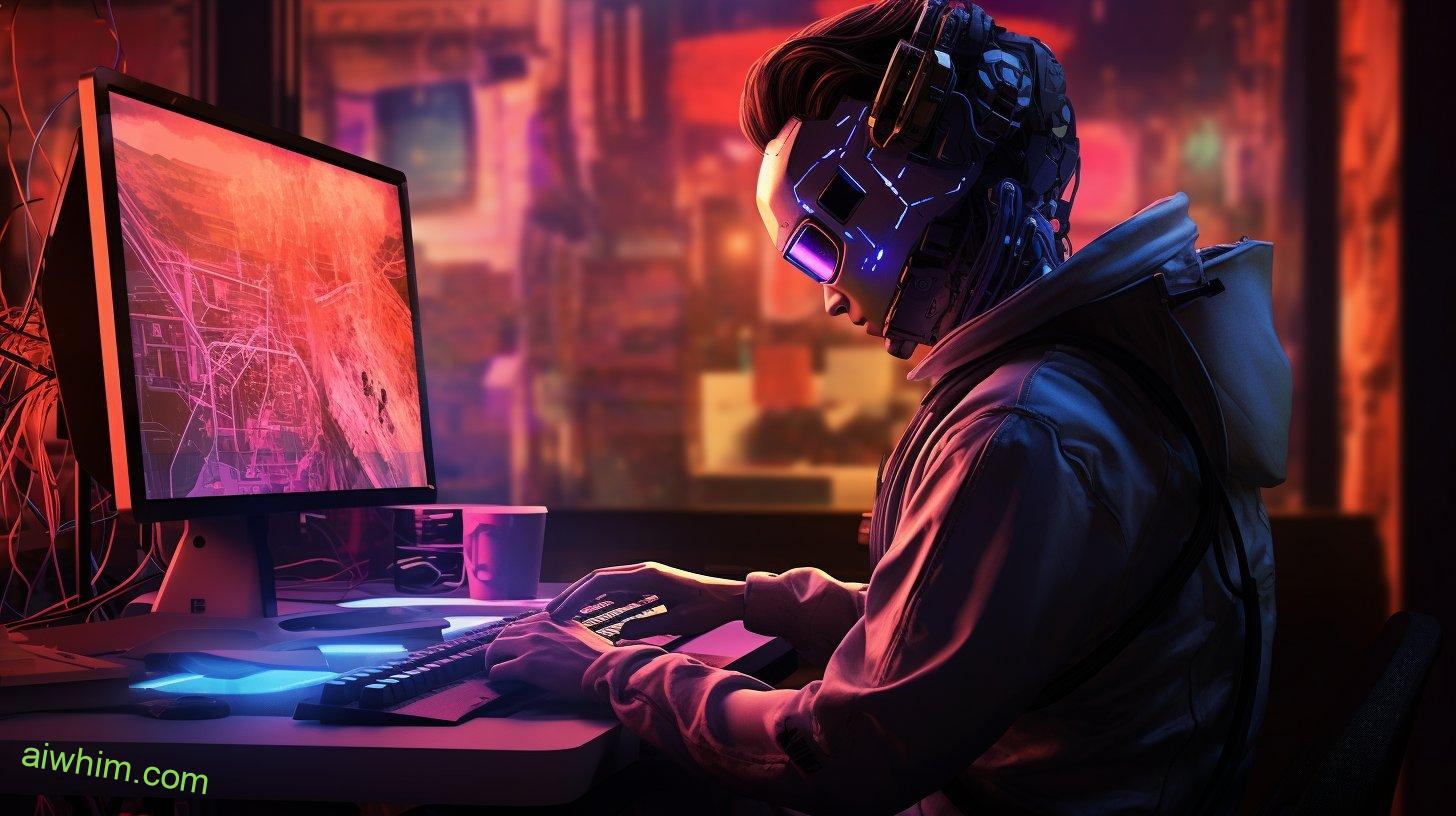
AI’s Influence on the Job Market for Computer Engineers
In the previous subtopic, we explored the battle between AI and human intelligence in the engineering field. Now, let’s delve into how AI is influencing the job market for computer engineers. It’s a topic that might raise concerns about job security, but fear not, for there are reasons to be optimistic.
Here are some key points to consider:
- AI’s Impact on Job Security:
- While AI has the potential to automate certain tasks traditionally performed by computer engineers, it also opens up new opportunities.
- Rather than replacing computer engineers entirely, AI can augment their skills and assist them in complex problem-solving.
- As technology continues to advance rapidly, computer engineers who adapt and embrace AI will remain relevant in the job market.
- The Future Demand for Computer Engineers:
- With advancements in fields like machine learning and robotics, there is an increasing demand for professionals with expertise in these areas.
- Computer engineers who specialize in developing and maintaining AI systems will be highly sought after.
- Industries such as healthcare, finance, and manufacturing will continue to rely on skilled computer engineers to design innovative solutions powered by AI.
- Opportunities for Collaboration:
- Instead of viewing AI as a threat, computer engineers should see it as an opportunity for collaboration.
- Working alongside AI systems allows computer engineers to leverage their creativity and problem-solving abilities more effectively.
- By combining their domain knowledge with AI capabilities, computer engineers can push boundaries and create groundbreaking technologies.
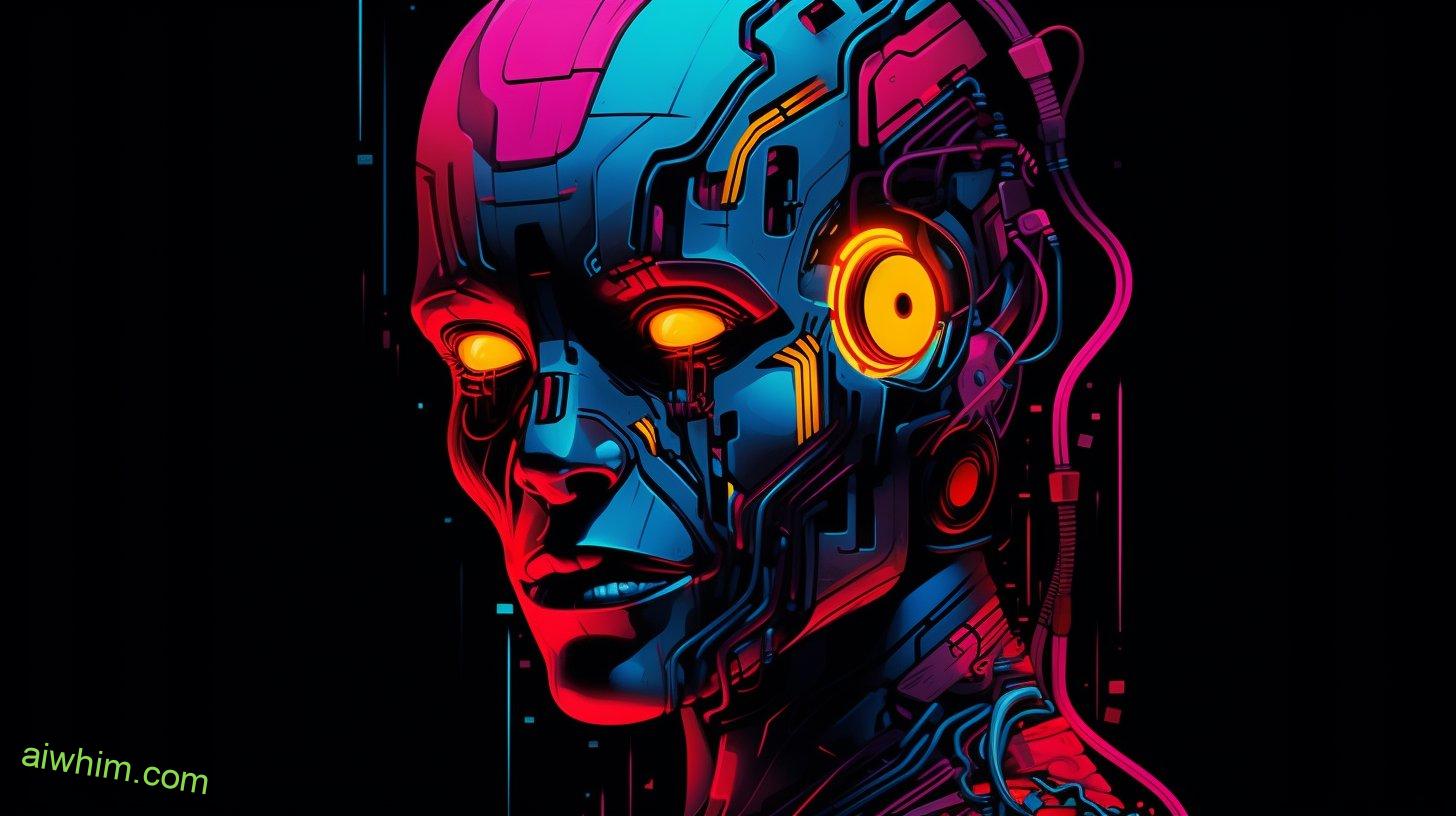
The Skills and Knowledge Needed to Adapt to AI in Engineering
Developing a strong understanding of AI and its applications is crucial for engineers looking to adapt to the changing landscape of the engineering field. In order to successfully navigate this new era, there are certain training requirements and skillsets needed.
Firstly, it is essential for engineers to gain knowledge in AI technologies such as machine learning, deep learning, and natural language processing. These technologies form the foundation of AI systems and being well-versed in them will enable engineers to effectively design and implement AI solutions.
Additionally, engineers should also focus on developing their skills in data analysis and interpretation. AI heavily relies on large amounts of data, and being able to analyze and interpret this data is key to deriving meaningful insights. This includes skills like statistical analysis, data visualization, and data mining.
Furthermore, engineers should cultivate their problem-solving abilities. AI presents complex challenges that require creative thinking and innovative approaches. By honing their problem-solving skills, engineers can overcome obstacles encountered while working with AI systems.
Moreover, communication skills play a vital role in adapting to AI in engineering. Engineers must be able to effectively communicate their ideas, findings, and recommendations not only within their teams but also with non-technical stakeholders. This ensures seamless collaboration between different departments involved in implementing AI solutions.
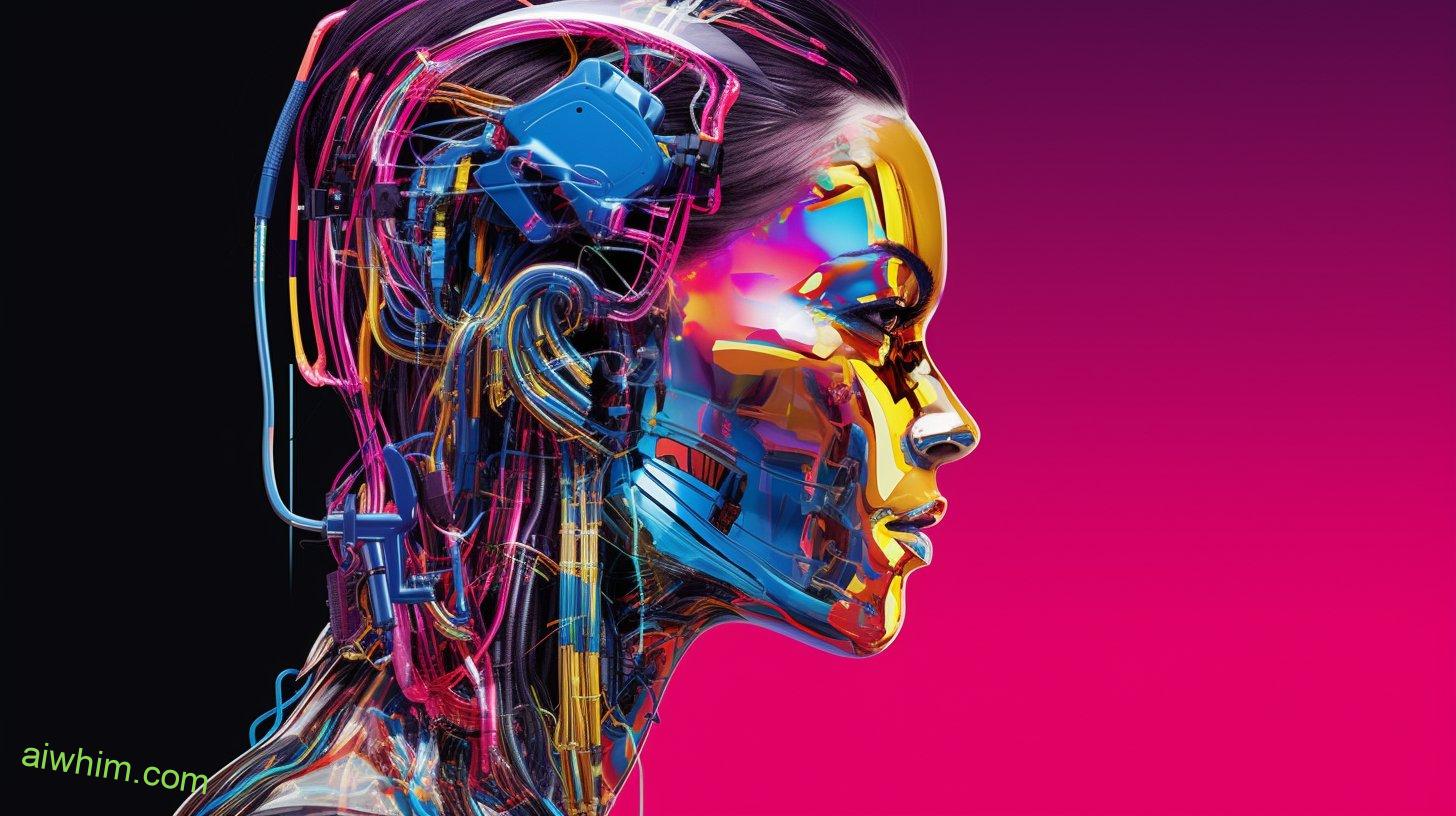
Embracing AI as a Computer Engineer: Opportunities and Challenges
Embracing AI as a computer engineer comes with both exciting opportunities and unique challenges. As technology continues to advance, the integration of artificial intelligence into various industries, including engineering, has become inevitable. Here are some key points to consider when navigating this new landscape:
- Opportunities:
- Efficiency: With AI-powered automation, you can streamline repetitive tasks and free up time for more complex problem-solving.
- Innovation: AI opens doors to new possibilities by enabling engineers to develop intelligent systems that can learn from data and make autonomous decisions.
- Collaboration: Working alongside AI technologies allows you to tap into vast amounts of information and insights from diverse sources, leading to enhanced collaboration among teams.
- Challenges:
- Ethics: As an engineer embracing AI, it’s essential to address ethical considerations such as privacy, bias in algorithms, and accountability for decision-making processes.
- Skills Upgrading: To fully leverage the potential of AI in your field, you need to continually update your skills by learning about machine learning algorithms, data analysis techniques, and programming languages used in developing AI models.
- Job Disruption: While AI creates opportunities for efficiency gains, it also raises concerns about job displacement. It is crucial to adapt your skill set accordingly and find ways to work collaboratively with these emerging technologies.
Despite the challenges ahead, embracing AI as a computer engineer offers tremendous prospects for growth and innovation. By staying informed about the latest advancements in artificial intelligence and actively developing your skills in this area, you can position yourself at the forefront of technological progress while ensuring that human values remain at its core. Remember: with freedom comes responsibility – so seize these opportunities mindfully!
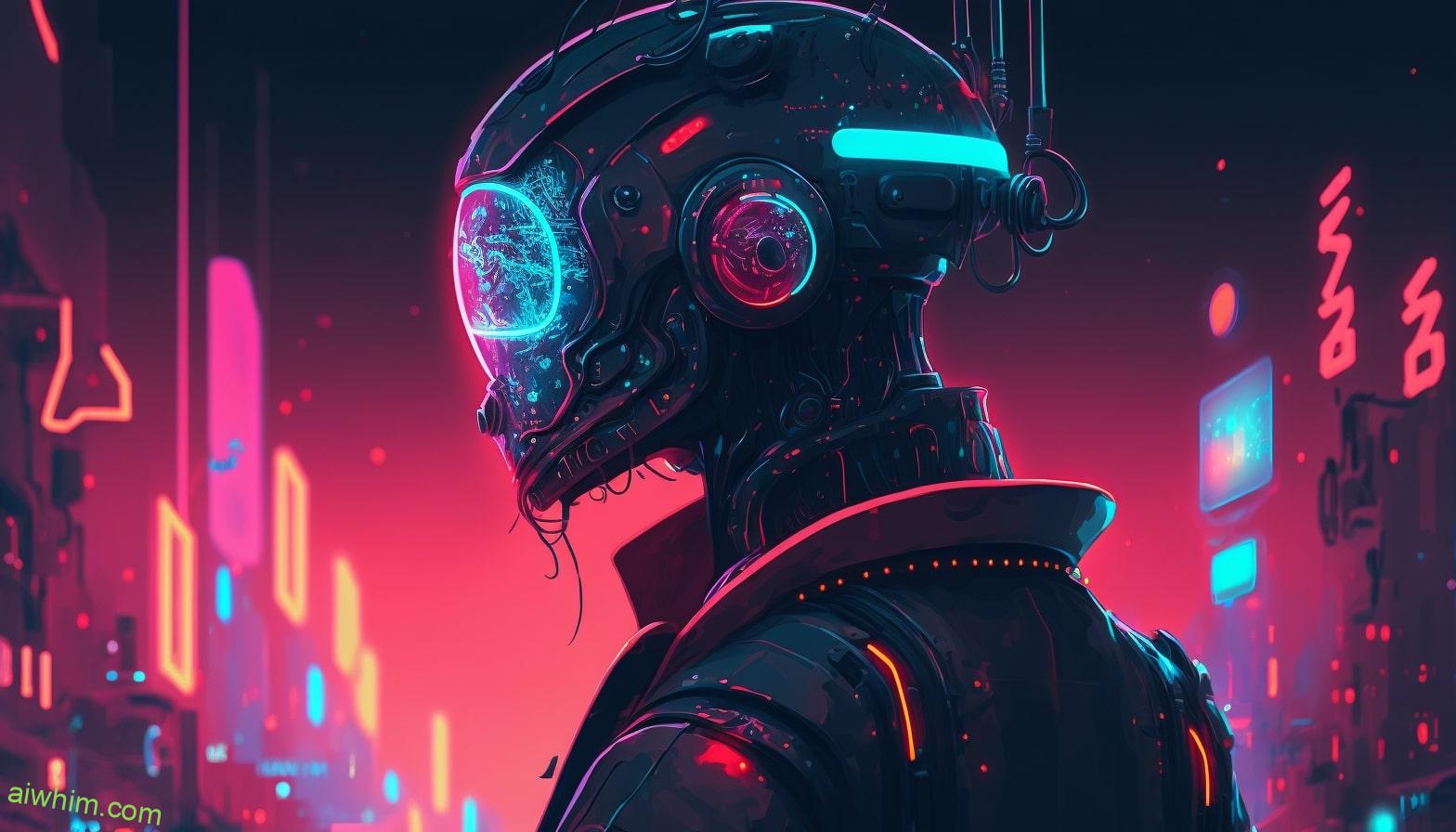
Frequently Asked Questions
What Are the Ethical Considerations in the Development of Ai?
When considering the development of AI, it is important to address privacy concerns, bias, and discrimination. You should reflect on how these factors may impact freedom and ensure ethical practices are followed.
How Is AI Enhancing Computer Engineering Skills?
AI is revolutionizing computer engineering skills by providing AI-assisted automation, optimizing processes, and improving efficiency. Embrace the power of this technological advancement to unlock your potential and experience true freedom in the field.
What Skills and Knowledge Are Needed to Adapt to AI in Engineering?
To adapt to AI in engineering, you need skills and training. Stay updated on the latest technology trends, learn programming languages like Python, and develop problem-solving abilities. Embrace continuous learning for success.
What Are the Opportunities and Challenges of Embracing AI as a Computer Engineer?
Embracing AI as a computer engineer brings opportunities and challenges. You have the chance to innovate and automate processes, but also face the challenge of staying relevant in an ever-evolving field.
How Does AI Impact the Job Market for Computer Engineers?
AI is revolutionizing the job market for computer engineers. It presents both opportunities and challenges, shaping the future of this field. Embrace AI to stay relevant and adapt to the changing landscape.
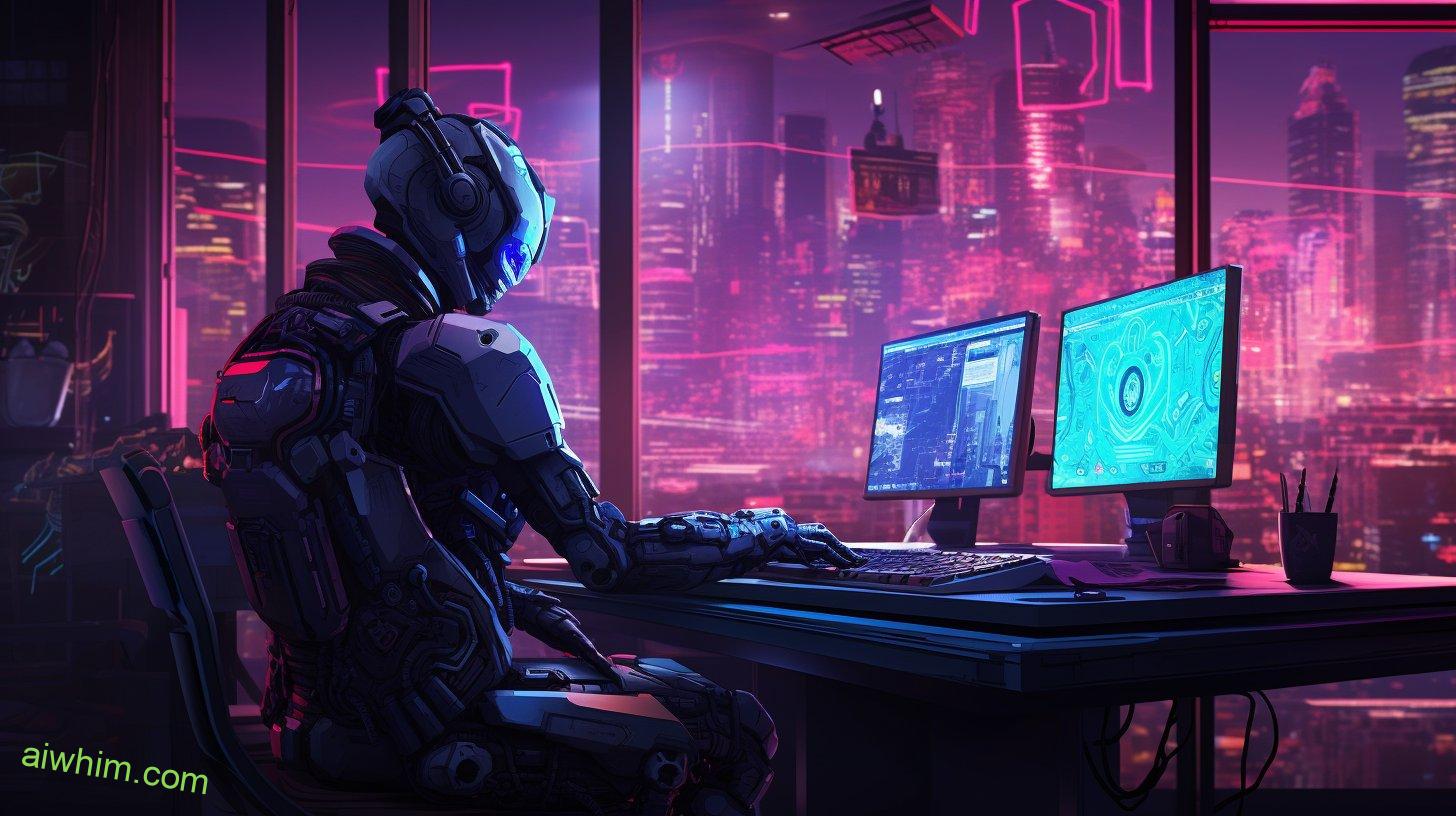
Conclusion
So, there you have it. AI, the supposed successor to computer engineers. It’s interesting how we’ve come full circle.
The very technology that was created by engineers is now threatening their own existence. But hey, who needs human intelligence when we have AI, right?
We can just sit back and let the machines take over while we sip our coffee. Oh wait…who’s going to make the coffee?
Well, I guess even AI has its limitations after all.

